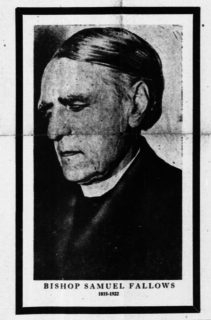A surname, family name, or last name is the portion of a personal name that indicates a person's family. Depending on the culture, all members of a family unit may have identical surnames or there may be variations based on the cultural rules.

Clark is an English language surname, ultimately derived from the Latin clericus meaning "scribe", "secretary" or a scholar within a religious order, referring to someone who was educated. Clark evolved from "clerk". First records of the name are found in 12th-century England. The name has many variants.

The fallow deer is a ruminant mammal belonging to the family Cervidae. This common species is native to Europe, but has been introduced to Antigua & Barbuda, Argentina, South Africa, Fernando Pó, São Tomé, Madagascar, Mauritius, Mayotte, Réunion, Seychelles, Comoro Islands, Morocco, Algeria, Tunisia, Cyprus, Israel, Cape Verde, Lebanon, Australia, New Zealand, Canada, the United States, the Falkland Islands, and Peru. Some taxonomers include the rarer Persian fallow deer as a subspecies, while others treat it as an entirely different species.
Neil is a masculine given name of Gaelic origin. The name is an Anglicisation of the Irish Niall which is of disputed derivation. The Irish name may be derived from words meaning "cloud", "passionate", or "champion". As a surname, Neil is traced back to Niall of the Nine Hostages who was an Irish king and eponymous ancestor of the Uí Néill and MacNeil kindred. Most authorities cite the meaning of Neil in the context of a surname as meaning champion.
Quinn is an Anglicised form of the Irish Ó Coinn. The latter surname means "descendant of Conn". The surname Quinn is also rendered Ó Cuinn in Irish. The surname is borne by numerous unrelated Irish families in Ulster and the Irish counties of Clare, Longford, and Mayo. The most notable family of the name are that of Thomond, a Dalcassian sept, who derive their surname from Niall Ó Cuinn who was slain at the Battle of Clontarf in 1014. This family was formerly represented by the Earls of Dunraven. Another family is that seated in Annaly, who were related to the O'Farrell lords of Longford. Other families include one seated in Antrim; one seated in Raphoe; and one called Clann Cuain, seated near Castlebar. In the seventeenth century, the surname Quinn was common in Waterford. In 1890, the surname was numerous in Dublin, Tyrone, Antrim, and Roscommon. Quinn is one of the twenty most common surnames in Ireland. It is sometimes said that the surname Quinn is borne by Catholics whilst Quin is borne by Protestants.
Brian is a male given name of Irish and Breton origin, as well as a surname of Occitan origin. It is common in the English-speaking world. It is possible that the name is derived from an Old Celtic word meaning "high" or "noble". For example, the element bre means "hill"; which could be transferred to mean "eminence" or "exalted one". The name is quite popular in Ireland, on account of Brian Boru, a 10th-century High King of Ireland. The name was also quite popular in East Anglia during the Middle Ages. This is because the name was introduced to England by Bretons following the Norman Conquest. Bretons also settled in Ireland along with the Normans in the 12th century, and 'their' name was mingled with the 'Irish' version. Also, in the north-west of England, the 'Irish' name was introduced by Scandinavian settlers from Ireland. Within the Gaelic speaking areas of Scotland, the name was at first only used by professional families of Irish origin. It was the fourth most popular male name in England and Wales in 1934, but a sharp decline followed over the remainder of the 20th century and by 1994 it had fallen out of the top 100. It retained its popularity in the United States for longer; its most popular period there was from 1968–1979 when it consistently ranked between eighth and tenth. The name has become increasingly popular in South America - particularly Argentina and Uruguay since the early 1990s.

Little is a surname in the English language. The name is derived from the Middle English littel, and the Old English lȳtel, which mean "little". In some cases the name was originally a nickname for a little man. In other cases, the name was used to distinguish the younger of two bearers of the same personal name. Early records of the name include: Litle, in 972; Litle, in about 1095; and le Lytle, in 1296. The surname has absorbed several non English-language surnames. For example, Little is sometimes a translation of the Irish Ó Beagáin, meaning "descendant of Beagán". Little can also be a translation of the French Petit and Lepetit, as well as other surnames in various languages with the same meaning ("little"), especially the German name Klein during World War II.

Fallow is a pale brown color that is the color of sandy soil in fallow fields.
Tyler is an English name derived from the Old French tieuleor, tieulier and the Middle English tyler, tylere. The name was originally an occupational name for one who makes or lays tiles. It is used both as a surname, and as given name for both sexes. Among the earliest recorded uses of the surname is from the 14th century: Wat Tyler of Kent, South East England.

Martin may either be a surname or given name. Martin is a common given and family name in many languages and cultures. It comes from the Latin name Martinus, which is a late derived form of the name of the Roman god Mars, the protective godhead of the Latins, and therefore the god of war. The meaning is usually rendered in reference to the god as "of Mars", or "of war/warlike" ("martial").
Norman is both a surname and a given name. The surname has multiple origins including English, Irish, Scottish, German, Norwegian, Ashkenazi Jewish and Jewish American. The given name Norman is mostly of English origin, though in some cases it can be an Anglicised form of a Scottish Gaelic personal name.
Fallow is the stage of crop rotation in which the land is deliberately not used to raise a crop.
English Americans are Americans whose ancestry originates wholly or partly in England.
In the 2017 American Community Survey, English Americans are (7.1%) of the total population.
The German Fallow budgerigar mutation is one of approximately 30 mutations affecting the colour of budgerigars. At least three types of Fallow, the German, English, and Scottish, all named after their country of origin, have been established, although none of these types is common. They are superficially similar, but adult birds may be distinguished by examining the eye. All have red eyes, but the German Fallow shows the usual white iris ring, the eye of the English Fallow is a solid red with a barely discernible iris and the iris of the Scottish Fallow is pink.
The English Fallow budgerigar mutation is one of approximately 30 mutations affecting the colour of budgerigars. At least three types of Fallow, the German, English and Scottish, all named after their country of origin, have been established, although none of these types is common. They are superficially similar, but adult birds may be distinguished by examining the eye. All have red eyes, but the German Fallow shows the usual white iris ring, the eye of the English Fallow is a solid red with a barely discernible iris and the iris of the Scottish Fallow is pink.
The Scottish Fallow budgerigar mutation is one of approximately 30 mutations affecting the colour of budgerigars. At least three types of Fallow, the German, English and Scottish, all named after their country of origin, have been established, although none of these types is common. They are superficially similar, but adult birds may be distinguished by examining the eye. All have red eyes, but the German Fallow shows the usual white iris ring, the eye of the English Fallow is a solid red with a barely discernible iris and the iris of the Scottish Fallow is pink.
Trump is a surname of English and German origin:

David Fallows is an English musicologist specializing in music of the late Middle Ages and Renaissance and the performance practice of music. He is a leader in fifteenth-century music studies, particularly Guillaume Dufay, Josquin des Prez, and secular song.








